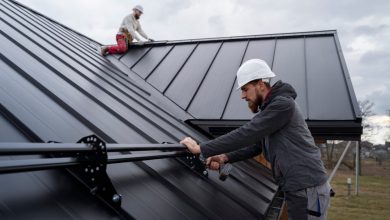Top Tips for Plumbing and Heating System Installation

Hiring a Qualified Plumber
When it comes to installing plumber and heating systems, it’s crucial to start by hiring a qualified and licensed plumber. They have the expertise needed to design and install a system that meets your requirements and complies with local building codes.
Careful Layout Planning
Before beginning any installation work, it’s essential to carefully plan the layout of your plumbing and heating system. Consider the location of fixtures, appliances, and heating units to ensure efficient operation and easy maintenance.
Opting for High-Quality Materials
Using high-quality materials for your plumbing and heating system installation, including pipes, fittings, and fixtures, is crucial. This can help prevent leaks and other issues that may lead to costly repairs in the future.
Correctly Sizing Your System
Ensure that your plumbing and heating system is sized correctly for your home’s needs. An undersized system will struggle to keep up with demand, while an oversized system can be inefficient and wasteful.
Proper Pipe Insulation
Insulating your pipes can help prevent heat loss and reduce the risk of frozen pipes during winter. This is especially important for pipes that run through unheated spaces such as attics, basements, and crawlspaces.
Considering Energy-Efficient Options
When choosing heating appliances and fixtures, consider energy-efficient options to reduce your energy bills and environmental impact. Look for products with high Energy Star ratings.
Installing Shut-Off Valves
Installing shut-off valves for each fixture and appliance in your plumbing system allows you to isolate any leaks or problems without having to shut off the water supply to your entire home.
Thorough System Testing
Once your plumbing and heating system is installed, test it thoroughly to ensure everything is working correctly. Check for leaks, proper flow, and adequate heating before closing up walls or ceilings.
Maintenance Considofessionals
If you’re unsure about any aspect of your plumbing or heating system installation, don’t hesitate to consult with a professional plumber. They can provide valuable advice and ensure that your installation meets all safety and regulatory requirements.
In conclusion, proper planning, high-quality materials, and expert installation are essential for a successful plumbing and heating system installation. By following these tips, you can ensure that your system operates efficiently and reliably for years to come.
Faqs
- Why is it important to hire a qualified and licensed plumber for plumbing and heating system installation?
- Hiring a qualified and licensed plumber ensures expertise in designing and installing systems that meet requirements and comply with local building codes, ensuring safety and efficiency.
- What is the significance of careful layout planning before starting installation work?
- Careful layout planning helps determine the efficient placement of fixtures, appliances, and heating units, ensuring optimal operation and easy maintenance of the system.
- Why is using high-quality materials crucial for plumbing and heating system installation?
- High-quality materials help prevent leaks and other issues, reducing the need for costly repairs in the future and ensuring the longevity of the system.
- How does correctly sizing your plumbing and heating system affect its performance?
- Correct sizing ensures that the system meets the home’s needs efficiently; an undersized system may struggle to keep up with demand, while an oversized one can be inefficient and wasteful.
- Why is proper pipe insulation recommended for plumbing systems, especially in colder climates?
- Proper insulation helps prevent heat loss and reduces the risk of frozen pipes, particularly in areas like attics, basements, and crawlspaces where pipes are vulnerable to extreme temperatures.
- What are the benefits of considering energy-efficient options when selecting heating appliances and fixtures?
- Energy-efficient options can lower energy bills and reduce environmental impact, particularly when products have high Energy Star ratings.
- Why is it advisable to install shut-off valves for each fixture and appliance in a plumbing system?
- Installing shut-off valves allows for easy isolation of leaks or problems without disrupting water supply to the entire home, enhancing convenience and minimizing potential damage.




